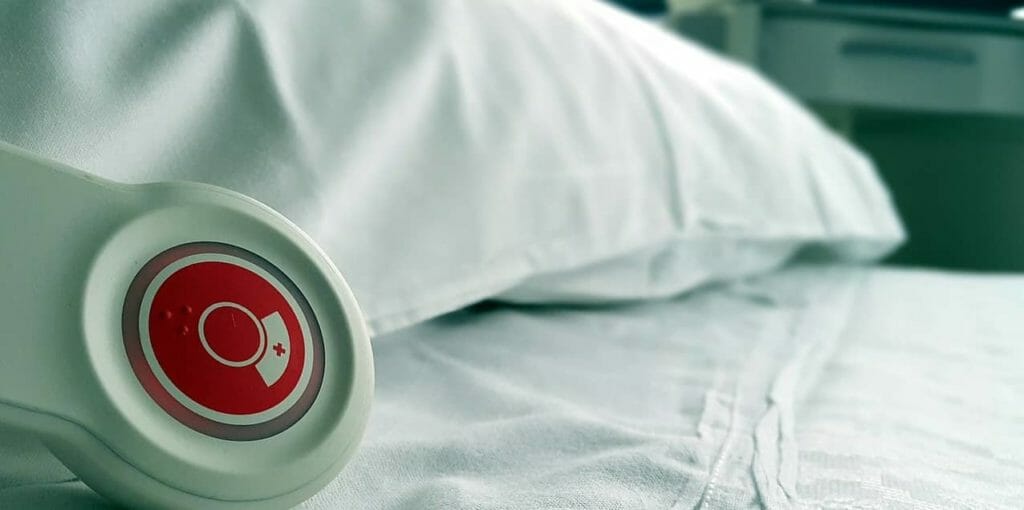NURSING HOME BEDSORES LAWYER/
When you place a loved one into a nursing home or other long-term care facility, you expect them to be cared for with expert-level skill for their particular challenges, paired with concern for their wellbeing as a person. Despite clearly written rules and regulations about acceptable standards of care in nursing homes, there are, unfortunately, instances where nursing home residents and patients experience clear signs of injury, neglect or abuse.
Bedsores are one of the most obvious and visible signs of possible neglect due to improper care in a nursing home. It is important to understand and recognize these sores as they can be an alarming indicator that your family member or loved one is being or has been mistreated, and you may be in need of a bedsores lawyer.
WHAT ARE BEDSORES?
Bedsores are skin ulcerations that happen from body pressure on a specific area or areas of the skin, over a prolonged period of time. They can appear almost anywhere on the body, but are common on areas such as the buttocks, backs of the knees, the back of the head, and heels of the feet, where bodies at rest meet the bed.
Bedsores vary in stages of severity, from Stage 1 to Stage 4, depending on how serious the damage is that has been done. Stage 1 bedsores can go away on their own in a few days with frequent changing of position, proper diet, and close monitoring of the patient and the damaged area of skin. Stage 4 bedsores can be so serious that they can cause deep-down damage to muscles and ligaments and may even require surgery.

HOW DO BEDSORES HAPPEN?
When people lie or sit in certain positions without moving (or being moved, if they are unable to move themselves), the blood supply to areas of pressure can be cut off. Over several hours, that skin can begin to die, and the area becomes visibly red. If the patient can feel pain in the affected area, a bedsore can make it become very painful. If more time passes, the sore can break open and become infected.
Bedsores are a potential problem for anyone in a nursing home or care facility, but are most common in elderly patients, patients in wheelchairs, and residents with poor nutrition and/or circulatory problems, including diabetes. Some patients face many of these challenges together and are thus at an increased risk for bedsores.
WHAT IS THE TREATMENT FOR BEDSORES?
Nursing home staff members should be properly trained and educated in how to prevent bedsores, as well as how to treat them early on in Stage 1 if they unfortunately appear. Prevention includes prompt, regular attention to the patient’s body and comfort as a whole, including regularly moving them to prevent bedsores from forming, and changing positions and the patient’s bedding frequently. Washing and drying the skin properly, helping the patient get adequate nutrition to help prevent bedsores, and acting to heal early sores before they get to an advanced stage are all part of proper care and treatment in a nursing home facility.
As bedsores worsen, the time and methods to heal them become more complex and challenging. Stage 2 pressure sores can heal in anything from a few days’ time to two or three weeks. Stage 3 sores are quite a bit more serious, can involve infection and dead tissue, and can take several months to heal. Stage 4 bedsores are so serious and can run so deep you may be able to visually see muscle tissue and bone through the wound. Serious infections can cause fever, chills, mental confusion and weakness. They can take years to recover from, if recovery is possible, and can present a serious health risk to those already in a weakened physical state.
WHAT ARE YOUR OPTIONS?
If you suspect nursing home abuse or neglect, if you observe bedsores on a family member or loved one, or they tell you about pain in specific areas that appears to be from bedsores, you should consult with a bedsore attorney who has experience dealing with nursing home cases.
Patients in nursing homes have rights under the law regarding proper care and treatment guidelines. Medicare provides an online guide that can be helpful when researching problems with particular nursing homes, as part of their Nursing Home Compare website. With help and advice from an experienced bedsore lawyer, you can document the bedsores and potentially create a case to bring a lawsuit against the home that has mistreated your loved one.
TALK TO A BEDSORE ATTORNEY FOR HELP
The Law Office of Jeff Green handles all varieties of nursing home abuse and neglect cases, and has specific experience with cases involving patients with varying stages of bedsores. As Illinois ranks among the top states for number of nursing home violations, it is important to select a lawyer experienced with state law who will fight for the rights of your loved one while treating each case with the care and confidentiality it deserves.



